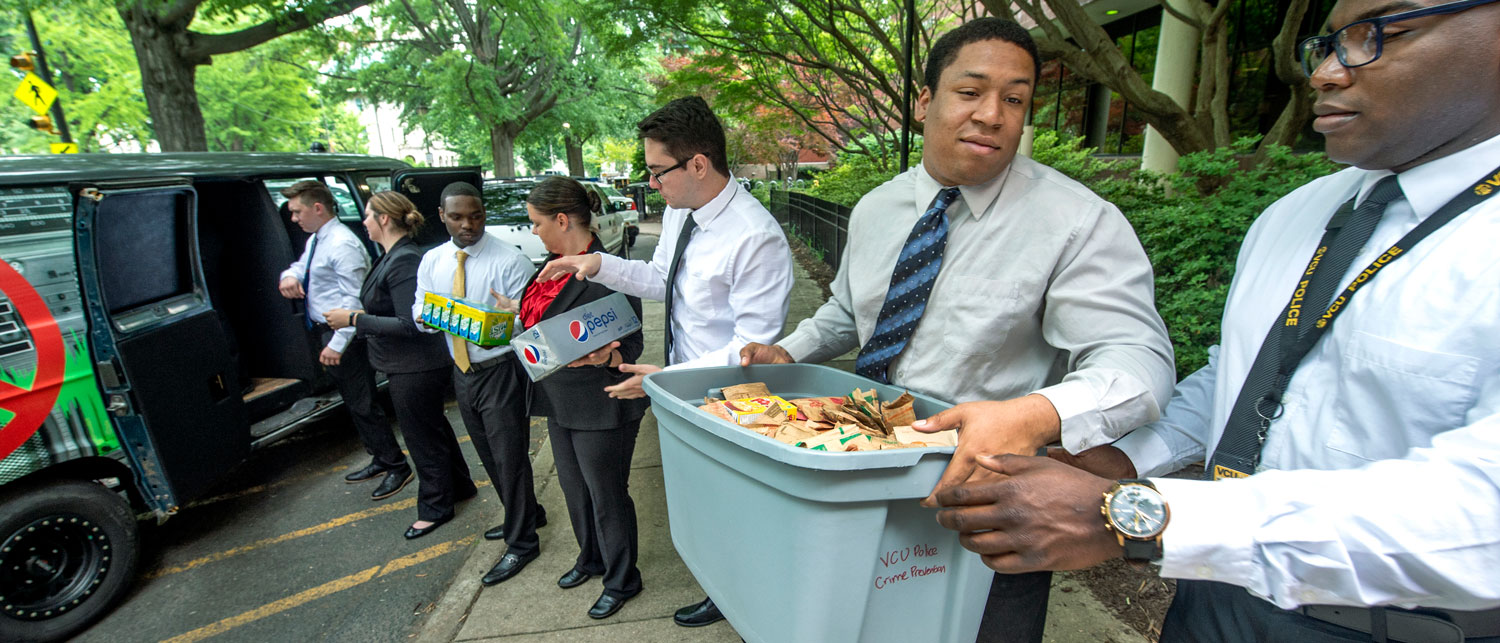
Community Engagement
16 hours
Amount of paid leave CHS faculty and staff can receive for community service each calendar year
24.6%
Percentage of eligible CHS employees who used their leave in 2019-20
594
Number of volunteer hours used by eligible CHS employees in 2019-20
Community engagement is part of our identity in the College of Humanities and Sciences. Not only are we engaged and contributing citizens in our local community, but we are also the recipients of an array of resources and services provided by the dynamic and vibrant Richmond metro community.
CHS’s partnerships and engagement extend from students in REAL learning classes and involvement of staff, students and faculty in civic and volunteer activities, to social activism and faculty and students conducting community-engaged research. We partner with community organizations to address and provide creative solutions to problems. See below for more information.
Community Action Council
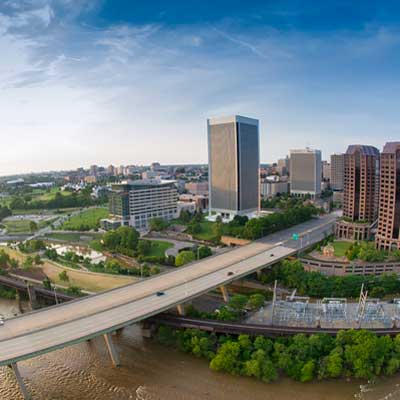
The overall mission of College of Humanities and Sciences Community Action Council is to advance partnerships between faculty, staff and students within CHS and local community organizations, businesses and governmental entities.
The Community Action Council works closely with the CHS Community Advisory Committee and CHS faculty, staff and students to:
- set an agenda and prioritize initiatives around community engagement in the community and the College
- identify disparities and social justice inequities within the community and ways to reduce these
- provide feedback to administrators, faculty and staff on activities and initiatives related to community engagement
- identify opportunities for students to work with organizations, and other entities within the metro Richmond community
- help to identify resources for CHS and community organization
Visit the Community Action Council page to view and learn more about its members.
2022-23 Report
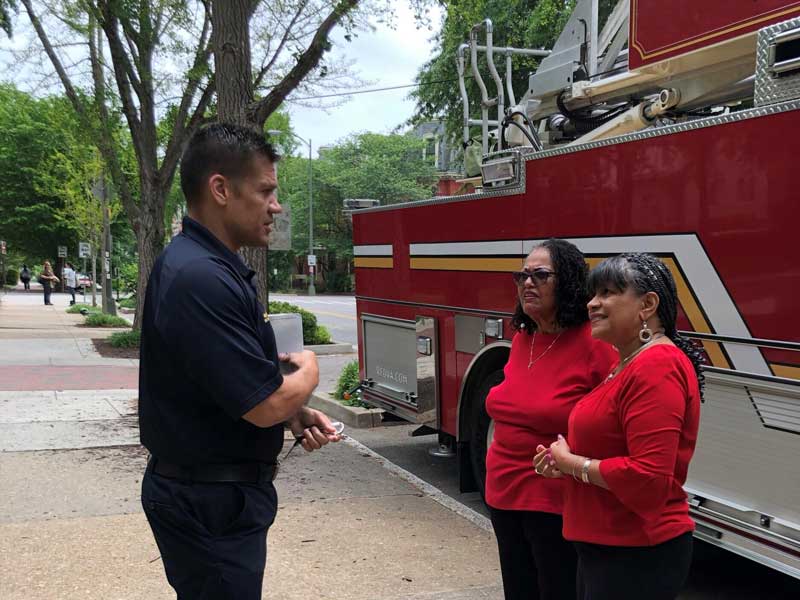
Community engagement is central to the mission of VCU and the College of Humanities and Sciences. The advancement and integration of community engagement in teaching, scholarship and service is an important goal for CHS. Many faculty and staff in CHS engage in activities that support community engagement. This report describes these activities.
Equity, Inclusion and Diversity & Community Engagement Report, 2022-2023
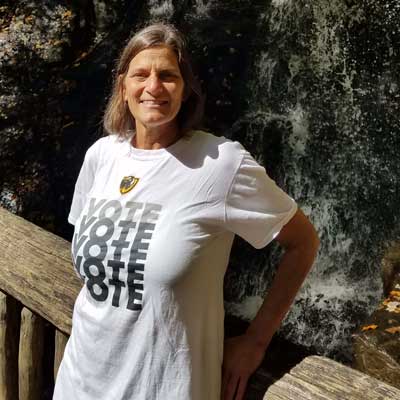
Communications and Program Coordinator
Department of Forensic Science
Volunteer Spotlight
"When I tell people that I work in the Department of Forensic Science, their first thought is 'How cool! How much like CSI is it?' Having completed my final science class as a college freshman more than 40 years ago, the science part of forensic science is far beyond my ability. My background is in social work, my profession for 30 years before joining the forensic science unit at VCU. This 'temporary' job as the department coordinator that I started 10 years ago, has expanded to include community engagement that allows me to use my social work skills and network. And best of all, we’re making a positive difference to the students in the Richmond area!
My family values guided me to volunteer at a variety of organizations from childhood through college and finally to pursue social work where my focus was on the health and education of children and their family. Whether working fulltime or part time, I continued to be involved with the community through volunteering at my children’s schools, my neighborhood, my synagogue and the Virginia Center for Inclusive Communities (formerly NCCJ). My final professional social work position, with the backpack program at FeedMore, connected me with Communities in Schools-Richmond.
Back to VCU Forensic Science. The support of the three forensic science department chairs with whom I’ve worked, allowed me to expand the opportunities available to our students. In the service-learning class I teach, students create and teach activities and labs to elementary through high school students in the Richmond area and beyond. We also have a cadre of graduate students who spread their enthusiasm for forensic science to school and community groups.
Trying to help others is part of who I am and it’s a wonderful feeling to share this with our students as they share it with the next generation."
Definitions
- Community Engagement
- The Carnegie Foundation defines community engagement as a “collaboration between institutions of higher education and their larger communities (local, regional/state, national, global) for the mutually beneficial exchange of knowledge and resources in a context of partnership and reciprocity. The purpose of community engagement is the partnership of college and university knowledge and resources with those of the public and private sectors to enrich scholarship, research, and creative activity; enhance curriculum, teaching and learning; prepare educated, engaged citizens; strengthen democratic values and civic responsibility; address critical societal issues; and contribute to the public good.”
- Community-Engaged Participatory Research
- A partnership approach to research that equitably involves community members, organizational representatives and academic researchers in all aspects of the research process. It enables all partners to contribute their expertise, with shared responsibility and ownership; it enhances the understanding of a given phenomenon; and, it integrates the knowledge gained with action to improve the health and well-being of community members, such as through interventions and policy change (Israel, Schulz, Parker, and Becker, 1998).
- Community-Engaged Learning
- A type of experiential learning that takes place within community settings. Students engaged in community-engaged learning work with and learn from a community partner; integrate community experiences with academic information; have a focus on a specific community or community organization’s concern; and include structured, organized and documented activities.
- Service Learning
- A form of community-engaged education which refers to the use of community service as an integral part of the pedagogical process. Such service is used to enhance student learning with direct ties to academic content (Chupp & Joseph, 2010).
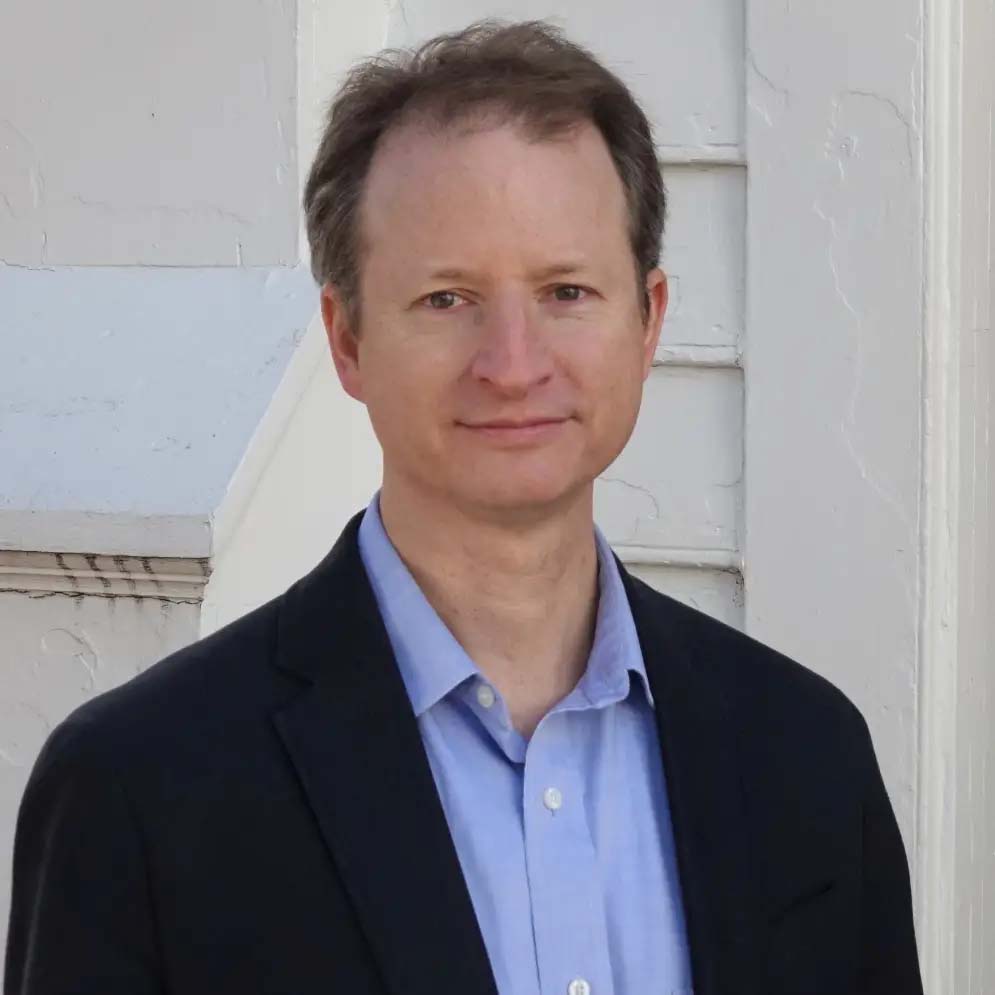
Professor
Department of History
Volunteer Spotlight
"Currently, I serve as co-leader of the East End Cemetery Collaboratory, a group I joined in 2017. The Collaboratory brings together faculty, students and community partners across Richmond to document, support and preserve African American history and culture via the region’s cemeteries. Many of these African American cemeteries have suffered from a number of attacks and structural disparities, and our group seeks to aid their restoration as sacred sites and as vital places of community. Since 2017, our work has been inspired by our long-term partnership with the Friends of East End Cemetery, a volunteer group connected with a cemetery founded in 1897 by freedom's first generation. That cemetery had become overgrown when the Friends formed, and the group worked to connect with descendants, clear nearly all of the cemetery’s sixteen acres, and research hundreds of its stories. The Collaboratory has since expanded beyond East End Cemetery to engage with the additional sites, including the Barton Heights Cemeteries, Woodland Cemetery and the Sons and Daughters of Ham Cemetery. Our faculty come from a wide variety of departments at VCU and the University of Richmond, with support from the Bonner Center of Civic Engagement at U.R. and from the Office of Community Engagement and the Office of Institutional Equity, Effectiveness and Success at VCU. Our community partners now also include the Descendants Council of Greater Richmond and the Woodland Restoration Foundation.
In addition to assisting with gravestone recovery and research, the Collaboratory has created the first fully-searchable, digital map of East End Cemetery, featuring more than 3,000 individual grave sites uncovered by volunteers and descendants. That map is also connected with a publicly-accessible, online archive related to the individuals buried there. Recently, members of the Collaboratory completed a drone mapping project identifying 8,000 graves at East End Cemetery, most of which are currently unmarked. We are preparing to undertake similar initiatives with volunteers at Woodland Cemetery and Barton Heights. Our participants find that there are few things more rewarding than uncovering grave stones that have been lost, helping families connect with their ancestors, and helping them tell their stories, all while building new relationships."
Community Engagement Highlights
April 21, 2025
Mellon Foundation grant will support launch of Indigenous Humanities Lab at VCU
Through a partnership of the Humanities Research Center and the College of Humanities and Sciences, Cristina Stanciu and Catherine Ingrassia are expanding the university’s focus on Native programs.
April 11, 2025
One scan at a time, VCU researchers give life to history in Richmond’s Black cemeteries
With 3D scanning technology, the Virtual Curation Lab is documenting the deceased and giving descendants a chance to connect with their families’ pasts.
Jan. 29, 2025
At free clinic, Latinx students at VCU promote good health and community
The event at Richmond’s Sacred Heart Center reflects ‘an exceptional demonstration’ of care and outreach, one of its leaders says.


